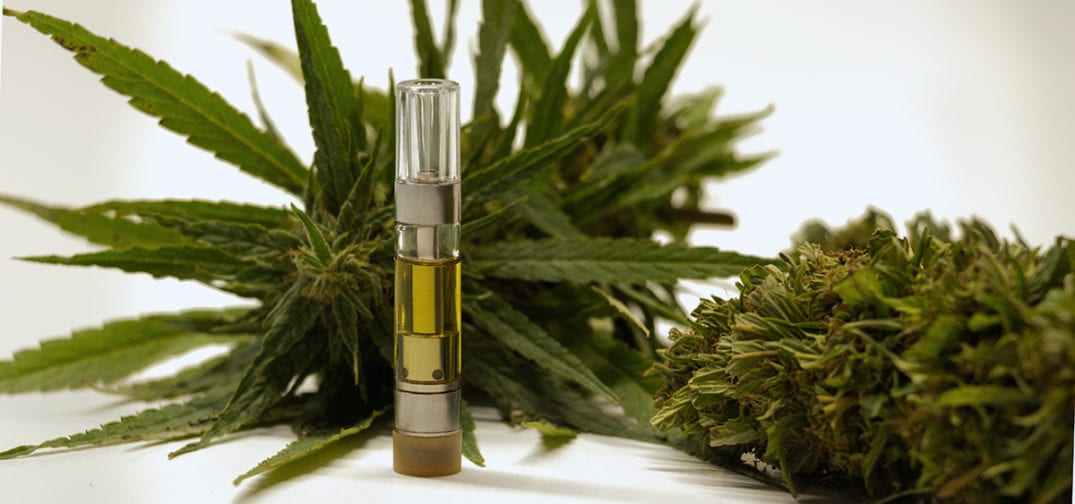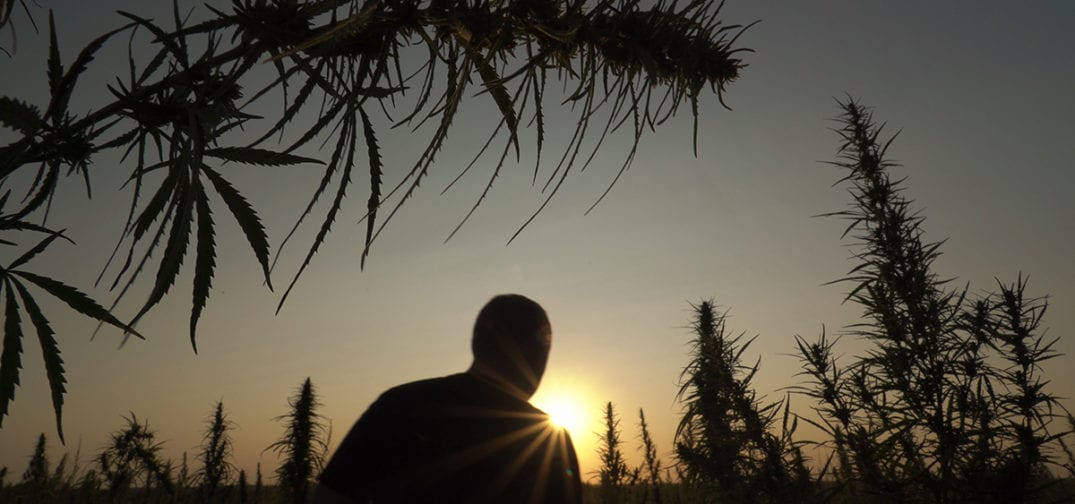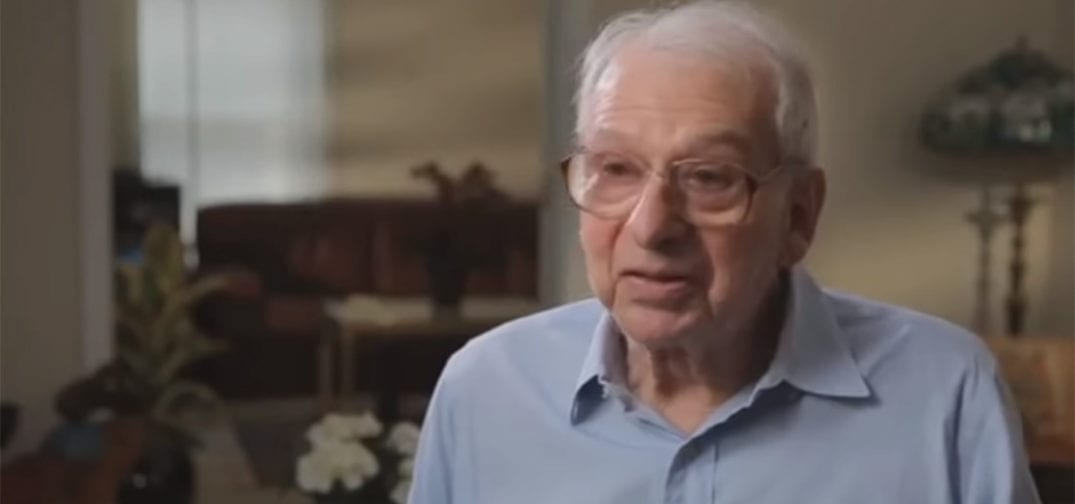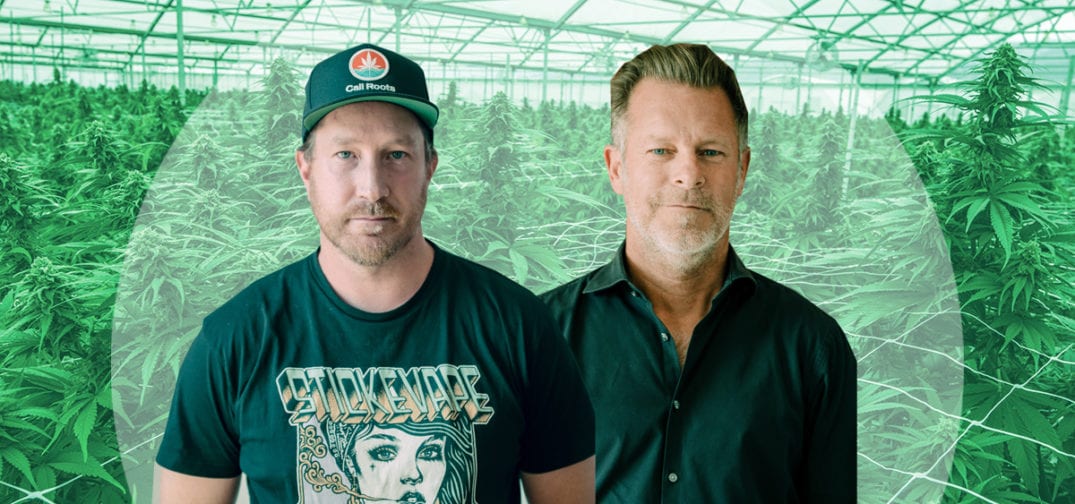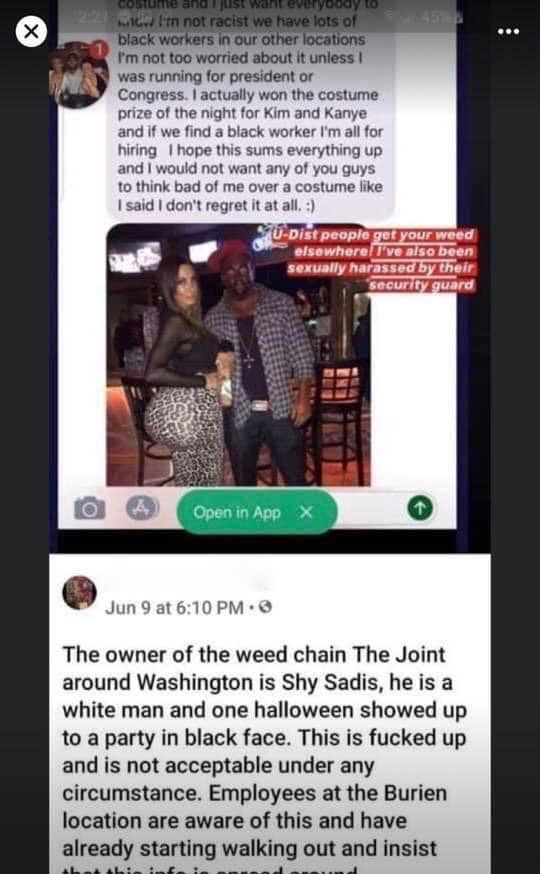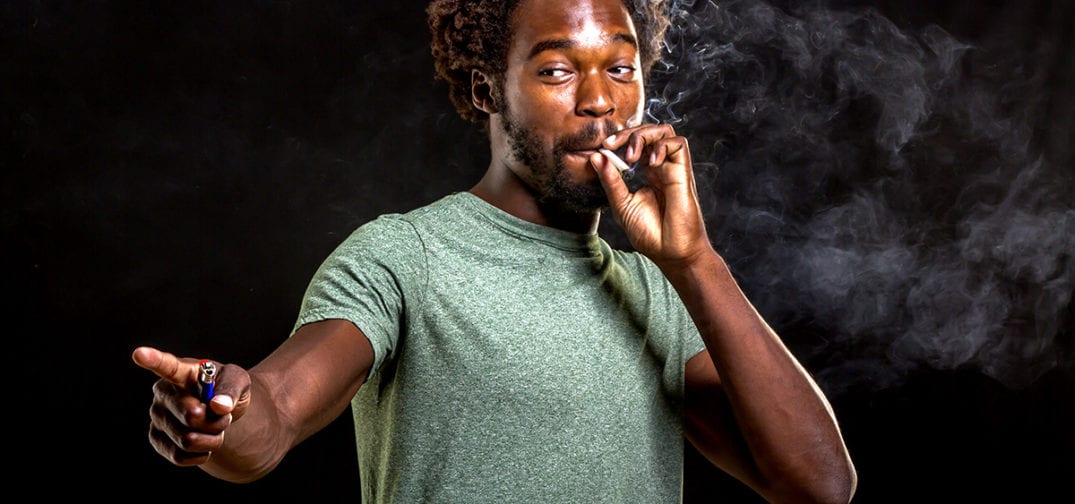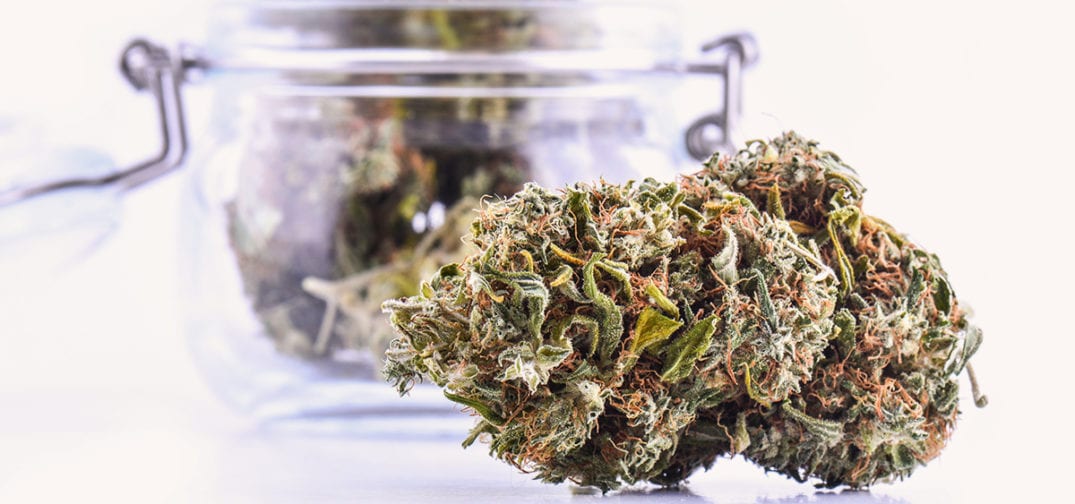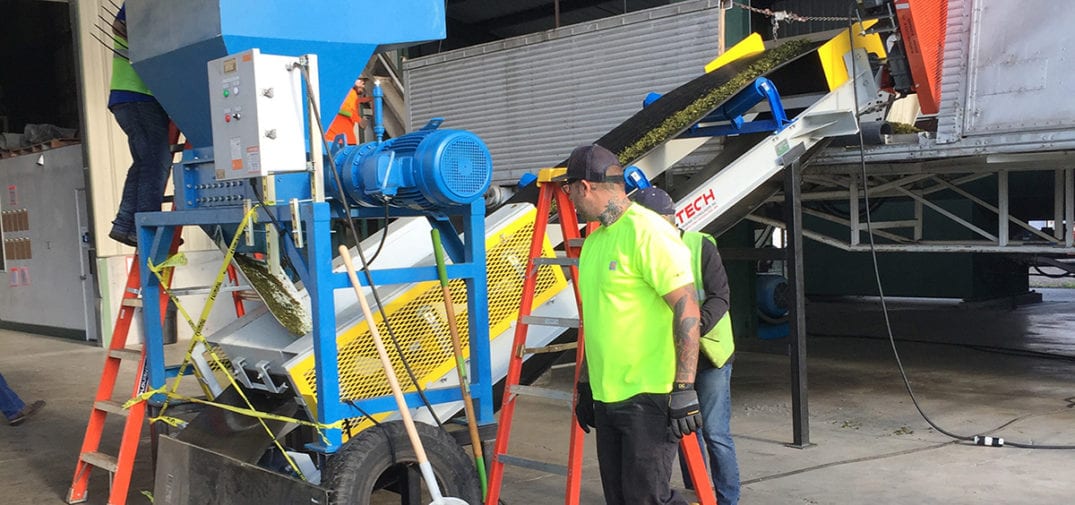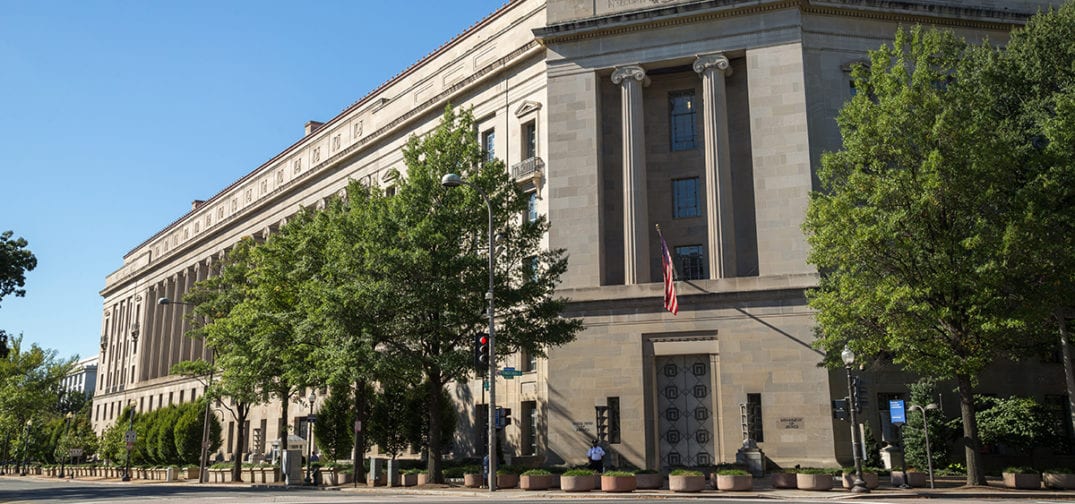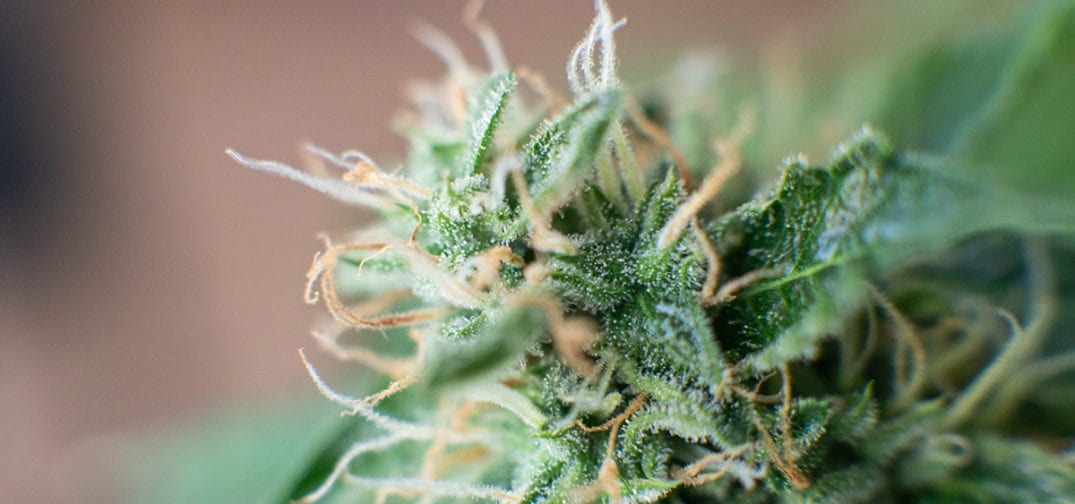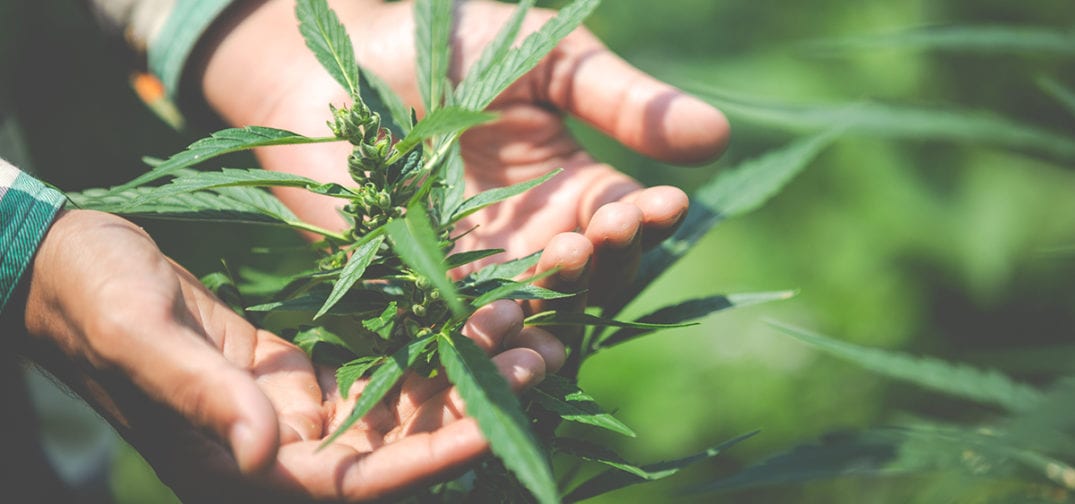The Walker brothers were recent guests on the Ganjapreneur podcast. Their conversation with host TG Branfalt covers Dub Bros‘ early entrance to the space, the business strategies that have driven their success so far, transitioning out of the gray market as regulations come online, their push into new and burgeoning state markets, and more!
Check out the interview in full via the media player below, or scroll further down to read a full transcript of this week’s Ganjapreneur.com podcast episode.
Listen to the podcast:
Read the transcript:
Commercial: This episode of the Ganjaprenuer podcast is made possible by Evergreen Gateway, a provider of cannabis-friendly financial services. As many cannabis entrepreneurs have experienced first hand, it can be very difficult to get approval for essential financial services once your bank finds out what industry you’re in. Evergreen Gateway makes it easy for cannabis entrepreneurs to access the financial resources that you need to operate your business, from merchant accounts, to cash advances, virtual checking, and depository banking. Evergreen Gateway has established solutions that cater to the specific needs of the cannabis industry. Get in touch today at evergreengateway.com.
TG Branfalt: Hey there, I’m your host TG Branfalt. Thank you for listening to the ganjapreneur.com podcast, where we try to bring you actionable information and normalize cannabis through the stories of entrepreneurs, activists, and industry stakeholders. Today I’m joined by Barry and Brent Walker. They’re the founders of California based at Dub Brothers, one of the state’s largest licensed holders, which also operates in Oklahoma. The company’s brands include Tradecraft Farms, Stick.E.Vapes, and Cali Roots dispensaries, and they also spearhead charitable efforts, including the Gobble Gobble Give, and Skid Row Xmas.
How are you guys doing this afternoon?
Brent Walker: Great.
Barry Walker: Good.
TG Branfalt: Stoked to have you guys on, we have a lot to talk about. Before we get into the history of Cali Roots and all the work that you guys do. Tell me about yourselves. How did you end up in the cannabis space?
Barry Walker: Brent?
Brent Walker: Go ahead Barry. Oh yeah, I can take it. I started about 11, 12 years ago actually growing in a shipping container in San Diego. I saw that the medical industry was starting to boom, so I tried to jump in a little early. From there I did a delivery service and then eventually partnered with Barry, my brother. We moved to LA together and started opening up a larger cultivation, we opened up dispensary’s. This was all back in the day. Then we’ve just, recently obtained licensing in the last year and a half.
TG Branfalt: How about you Barry? How’d you end up working with your brother?
Barry Walker: I’ll say, we’ve told this story a few times, but Brent… I had a lot of retail businesses through the Silver Lake area, the East Hollywood, back when it was booming. I was doing a lot of businesses when Brent approached me. One of my businesses is health and wellness. I was in spas, yoga, we had different lifestyle type businesses that they catered towards the health and wellness. I don’t know if I was a perfect fit or not. But Brent is very good at his craft. He had a very big vision and approached me to try help manage what we both realized would be much bigger down the road. I think it was a battle for him at first, because I was like, “No, no, no, I’m 20 years sober.” I was doing that inner struggle like, “Okay, what are we doing here? Is it real? Does it really help?”
Brent really guided me on the medicinal benefits of cannabis. I started doing a lot of my own research and after a while I was hooked and I jumped in 100%. But I think together we really round each other up. We’re we’re brothers. Having business partners, it’s tough, having business partners with your brother, we’re always looking at different sides of the coin and trying to figure things out, but we really compliment each other. It was a great move.
TG Branfalt: What was it like for you going from being successful in traditional businesses to moving to something as nascent and new as cannabis.
Barry Walker: Yeah, again, I think because I was in health and wellness, there was already a conversation about that for me. Brent coming in so strong and such an activist and already being a grower and seeing the vision and understanding where medical was going. It was an eyeopener for me. But it’s been interesting because it is a different business. I mean, when me and Brent started Dub Brothers, we literally had to look outside our door before we move product into a vehicle, it was a different time and it was legal, then it was illegal, then it was legal, but it wasn’t totally legal. But it was okay, then it wasn’t all that okay. There was this weird space. I would have to turn back to Brent all the time and he’d be like, “It’s okay, man, trust me, it’s okay.” I’d be like, “Oh, this isn’t like running a yoga studio.”
TG Branfalt: Brent, maybe this question is more up your alley. Tell me about the history of Cali Roots, because as I said, I haven’t spent much time in California and it’s a brand that I’m very familiar with.
Brent Walker: Yeah. Actually, our dad, one of his best friends, they grew up in Kansas, so just one state over and his friend, John, reached out to us and said, “Hey, it’s going legal and there’s no merit based system. You can just apply and get in.” So my first thought was like, well, I’m pretty confident in what we do, and I know we can do it well. So this is kind of a cool kind of test to see if we can compete on an open market. So, that was the thought of it. Then we just started going out there and finding locations. We actually got in really early, right in the very beginning. So it helped us lock down spaces for a lot cheaper, because landlords out here in California just rip you, it’s like $3 a square foot sometimes. Out there, they had no clue because it had never existed before, so we were able to get in at just like a low market rate for our cultivation and our retail. That helped a lot. Also, just being the first out there helped a lot.
We went out there and found a cultivation spot first, locked that down. We actually got it right next to the airport there in Oklahoma City. So it was kind of easy if I fly in and fly out. So we did that and then we started opening stores. This has been going on for about a year and a half I think. We just opened our fifth store about a month ago and Edmond. We have five locations, we have one in OKC. We have the one in Edmond that just opened. We have one in Stillwater that’s right next to the State College, which just crushes it. Then we have one by the university in Norman.
What else do we have Barry? We got one in… in the nicer part of town. I don’t know. But anyways, that’s kind of the approach that we took to it. We’ve seen that-
Barry Walker: Nichols Hills.
Brent Walker: Nichols Hills. Out of the gate, we did really well. Our whole concept is Cali. We’re bringing Cali strains to Oklahoma because we know everyone loves the Cali stuff. We do a lot of in-house breeding. We work closely with Seed Junky’s, which are like the breeders of wedding cake and Cushman’s, a lot of famous strains. We’ll be bringing all that out there to, soon. But yeah that’s kind of where we took off.
Then, I’d say last four months have been a little difficult because there were so many mom-and-pops that were opening up. There was thousands of them. So we think we hit that plateau a few months ago and a lot of them are falling off now. So you’re starting to see just some of the larger companies that are able to stick around through the storm. But I think we’re still in the end of that storm. I think, in the next three to four months, we’re going to look pretty good out there. Then when it goes recreational, we’re set up for it.
TG Branfalt: We’ll talk about the Oklahoma and that sort of thing. But I got to ask you, I had read that you guys describe yourselves as downtown Los Angeles, Skid Row farmer. What is downtown Los Angeles, Skid Row farmer?
Brent Walker: Go ahead, Barry.
Barry Walker: Well, okay. Yeah, this is a good one for me. We’ll get into philanthropy. Every year we host a large feed the homeless events through the holiday season. Thanksgiving to Christmas, we’re feeding homeless, we’ll do 35,000 meals a year. I started at 20 years ago in Silver Lake. But we’ve really with the strength and stability of the company, we’ve been able to really expand it. We’re in about 25 cities throughout the country now. We do a lot of work with Skid Row. That’s kind of what I’m coming back to, is we are not afraid of Skid Row, because we deal with it on a regular basis. Constantly, we do things, we’ll hand out food, clothing. Our Skid Row Christmas event is a big musical event with some top name acts and it’s a black and white affair and we hand out free… Santa Claus shows up, that the Los Angeles car club shows up so all the low riders and … come with their cars, we take presents down to Skid Row and drop them off.
People get sleeping bags, canned food, just all that stuff up. It’s rechargeable solar lighting, which is really a big get. So we’re not afraid of Skid Row. So we built our headquarters down, right smack down in the center of Skid Row.
TG Branfalt: Wow
Barry Walker: Whenever we invite people over, we have to have that little meeting with them and we go, “Okay, so here’s the deal, all right, it’s going to be a little scary at first, but once you get in behind the gates, it’s beautiful. But as you’re parking your car, you might get a little freaked out.” We have people come from all over the country sometimes from out of the country and honestly, they’ve never seen anything like it. I always wonder, when people are exposed to that for the first time, they leave there a little different. They understand that this is a pretty huge problem. Through our cannabis company, we do what we can, but it’s good for us to be able to leave our headquarters and to now know that it exists and they’re free to do what they want.
So we’re downtown, we’re local, downtown Los Angeles, Skid Row farmers. We have multiple facilities. Downtown LA, Brent has designed each one of those. We have quite a footprint downtown.
TG Branfalt: Does it have a different meaning for you Brent?
Brent Walker: No. I mean, the idea to move to LA from San Diego is, that when it was medical and kind of in that gray area, I couldn’t do it anywhere else. The epicenter was downtown LA. That’s where we were the safest. I mean, we’ve been through multiple raids over the years, but downtown LA was safer than North Hollywood, Orange County, San Diego. That’s the concept. We have so many locations now and the reason being is because we’ve always had seed to sell, we’ve always sold retail, is that when one location was raided, we would be able to have a backup. So that’s the reason why we had multiple, they’re not small, they’re like, 10, 20, 30,000 square foot facilities, about five or six of them between downtown LA. But that was kind of the concept for that.
You got other brands like Jungle Boys that were our neighbors coming up over the last 10 years. So there is that following of that urban grower, that downtown LA grower. A lot of the strains, a lot of the popular stuff is coming out of LA, which is really cool. But yeah, that’s kind of where we’re at.
TG Branfalt: Tell me about your brand’s, Tradecraft Farm, Sticky.E.Vapes, for you what are you thinking about when you’re trying to name a brand and design a product for that brand?
Brent Walker: Well, the name Tradecraft was a strong name, issues in government kind of, I don’t want to say… I don’t know. It’s what terrorists are good at their trade. So it’s called a trade craft. The government uses it. I heard it one time and I was like, that’s a cool name. It was strong. Our logo is a honey badger. So you got honey, honey oil, cannabis oil. Also, that the Badger is very resilient, it’s a strong animal. I just thought it was kind of cool. So we went with that as our mascot. That’s the concept behind Tradecraft Farms. Like I said, it’s all grown in downtown LA, so we really marketed around the in-LA growers. Then Sticky.E.Vape, was something that we started years ago and we only had in house. So like we came up with the name, we came up with the logo years ago and never really used it.
We had all the big brands like O.pen, back in the day and all these big vape brands that we were carrying in our stores. We kept our stuff in there like a white label cartridge just to see if we can compete with the big dogs. Eventually we launched it and we’ve done very well. So those are our two big brands. The Sticky.E.Vape is also like our SoCal Surfer. We’re kind of trying to go after kind of the Red Bull marketing idea. We sponsor snowboarders and pro-surfers and pro-skaters, graffiti artists. We work with RISk, RISK is a big graffiti artist here in LA. That’s kind of the SoCal beach life cannabis vape line that we have.
TG Branfalt: What’s it like for you Barry coming from a traditional background and now having to design, working in this aspect of cannabis, coming up with brands?
Barry Walker: Yeah. One thing we left out, we’re launching Better Days Bakery, which is a gluten free vegan bake line, which we’re really excited about. We were actually supposed to launch it at the hall of Flower Show about four days ago, but of course that was called off due to the coronavirus fears. We all have a really incredible incubator program where we’re launching a few brands that we’re really excited about and stay tuned for all of that stuff.
But again, there’s another story that I tell, it’s like when Brent asked me to partner up with him and join him on this crusade, as it was at the time, there was a bit of a learning, right?
Brent Walker: Yeah.
Barry Walker: He was teaching me how to grow and we were just in the very first part of what would become a very complex puzzle to become a seed to sale company. Now we cultivate, we manufacture, we distribute and we retail, all under multiple roofs, under the depths. But in all fairness, we started out as just pot farmers. Now, I just had a two hour meeting with our lobbyists and politicians. We’re working with them. We’ve reached so far out, we’re purchasing property all over the country. It’s really developed into quite a company. It’s exciting because in honesty, cannabis has delivered to me something that I would have expected a traditional company to deliver, but it’s delivered it at such a faster rate and such a faster pace. It’s literally been on steroids since day one. We’ve just been moving 180 miles an hour from the moment we wake up to the moment we pass out from exhaustion. It’s really exciting.
TG Branfalt: For both of you guys, is this where you expected this to go? I mean, most people would say, “Yeah, of course, I’m a brilliant businessman. This is exactly where I expected to be.” But I mean, it sounds like, just as you’re telling me the story, that you’re almost surprised.
Barry Walker: I’ll jump in. I think we both have different answers on that one, but I think I’ll let Brent answer. But, I think he had this vision long ago, about how big it could be. I think maybe me coming in from traditional, having so much experience in traditional business, I was maybe a bit more skeptical. I was like, “Wow, that’s a lot of hard work and boy, it takes a lot of time.” He was always like, “You’ll see, you’ll see.” Sure enough, I think it surprised me. But I’d love for Brent to answer too.
Brent Walker: Yeah. No, I mean, I kind of saw that this was going to happen and unfold the way it has. I don’t know why I say that, something in my gut told me that, I just knew that, that’s where I needed to be. 12 years ago, I could see the power it had medically, with the people coming through our stores with their hair wrapped up because they’re going through chemo. It was just very powerful. I knew this was going to be big. I mean, because you got alcohol, cannabis has been around forever.
TG Branfalt: Literally.
Brent Walker: Yeah. I knew at some point it could probably even be bigger than alcohol and we’re not even there yet. Because it’s on a broad level, it works for almost everybody. But there’s just so many people that haven’t tried it yet. People are being introduced to CBD and CBG and stuff like that. But yeah, I mean, I’m not surprised where we’re at, right now. I guess I’m a little more confused now than I was back then, of where it’s going, just because there’s so much going on right now. We’re all over the place, we do everything. We’re not just an extraction company or just a retail store, we do everything. Eventually, we’ll probably get bought out at some point, but I’m not going anywhere, this is what I love to do, this is my passion, so I’m going to be in the street for years. I’m not young, but I’m 41. So ideally we’re just at the tip of the iceberg right now.
TG Branfalt: I mean, speaking of tips of icebergs and talk about what’s happening with legalization, but I want to ask about Oklahoma. You guys were the first guests I’ve had on that have any experience in that state. So I’m wondering first, why did you decide to get into the Oklahoma market? Then second, what’s your take on the early success of Oklahoma’s industry? They have 220,000+ patients, that’s 5% of the state population. They expect $350 million in sales this year. So why Oklahoma and what’s driving these good numbers?
Brent Walker: I mean, like I said before, we do what we do very well. If you bring it all the way back to the plant where it starts, I feel like we can compete on that level. There could be 5,000 stores and I know we can still compete. It might not be as good as an area where they cap licensing like in California, but if you have stores in the right regions, you’re going to do very well. When I say it goes back to the plant, it goes back to the way I design our cultivation facility. We still use our traditional grill lights, which are a 1000 Watt HBS, but recently we’ve transitioned into a full spectrum LEDs in rack systems. We use rolling rack systems in Oklahoma. We have three levels high in our fleet. We have eight rooms, about 100 lights in each room.
So we can produce flower, that’s very beautiful at a very low cost. That’s kind of the concept behind the cultivation. Then we build the energy and the culture within our retail and people see it. Like I said before, people they want those Cali strains, because it’s not in all the stores out there. Every state is different. That’s the concept.
TG Branfalt: Do you have anything to add Barry about why you guys chose Oklahoma and what may be driving the early success of Oklahoma’s medical cannabis industry?
Barry Walker: Sure. Well, I mean, Oklahoma did it much differently, they made it more of a registration process, as opposed to an application process. So we were the first to rush out there. You’re seeing a lot of the bigger boys are coming out now and setting up shop. To answer the question, I mean, really it’s a timing thing. We’ll look at any city that’s friendly and we have for the last few years, like any city in California or outside of California. Any city that’s got an initiative or a majority voting block in the city council that says, “Hey, no, we get it, we understand it, we like it. We’d like to make some money from it.” We would like to be there. We love Oklahoma.
I mean, we’re Kansas boys. I was born in Wichita, Brent wasn’t, but our family is from Kansas. I got out of Kansas when I was young, but that’s our family roots out there. So we get the Midwest and the Midwest is a great place to set up a distribution hub for other States, once it starts to become a bit more federally legal, or you could start to cross State lines. So Oklahoma makes sense, But we’re in love with Missouri, of course. We’re in love with Michigan. We’re in love with Illinois and New Jersey. These are all States that are starting to move in that direction. Becoming that bigger company that I was talking about where we’re not just pot farmers anymore, we’re not just guys growing cannabis, we’re starting to put together action plans for nationwide, and multiple state operations. It’s tricky.
TG Branfalt: Yeah. Just recently Oklahoma advocates had been trying to get signatures. I’m wondering it was effectively shut down by the coronavirus rules, they had to stop, it was shut down by the Secretary of State. You said that, you obviously are watching what’s going on in Oklahoma. What was the trajectory of that legalization position? Was it positioned to be approved before it was shut down?
Barry Walker: Yes. Which one are you talking about? Are you talking about for recreational?
TG Branfalt: Yeah.
Barry Walker: I mean, Brent knows this too. He can answer this too. But the obvious next step, anytime there’s medical, the next step is recreational. Every single city council, every single city that has sort of hemmed and hawed and dragged their feet and been like, “Wow, we don’t know, we don’t know. Okay, we’ll allow it medical and see what happens.” Six months later, they’re like, “Hey, this is great. Let’s do recreational.” I mean, very quickly they’re… Oklahoma is a conservative neighborhood, but they’re also anti-big government, they’re more just like, “Let’s just run it.” It’ll be interesting to see how it plays out. Obviously coronavirus, it’s changed the game for everything, on a short term basis, hopefully not long term. But, I see Oklahoma going recreational with, or without any sort of initiatives.
TG Branfalt: What was your feeling on what was going on with regard to the petition, Brent?
Brent Walker: I didn’t really look into it, so I can’t really say on that. I just know there’s a lot of religion in Oklahoma, so there’s going to still be a lot of backlash regarding that. If it stays medical, I think we’re still going to do well.
TG Branfalt: Yeah. I mean, there’s the patient numbers, 5% of the population. I mean, that’s incredible.
Brent Walker: Yeah. We have a store in San Diego, we did an initiative years ago and we wrote it before it was even recreational in California and we got it passed recently and we had to open up as medical. Everywhere else is San Diego there’s been recreational for the year. So what we had to do is we actually eat the doctor script, we give them store credit for whatever they spend on their doctor script. The essence is kind of recreational, but then there’s a lot of people that are still a little concerned because they’re gun holders, they’re nurses, they’re afraid they’re going to be flagged online somewhere. So I mean, we still have that everywhere. But at some point, like Barry said, it is going to go and we’ll be ready for it.
TG Branfalt: You mentioned that you guys are eyeing Missouri. What is the medical cannabis industry potential there and what are the rec use prospects there? Because, that petition process too was also shut down by coronavirus rules.
Barry Walker: I’ll answer that, this is Barry. There’s a very large appeal process actually going on in Missouri right now. I think that’s the part that’s really shut everything down. But we have good relations in Missouri. We’ve actually been feeding the homeless out there for five years out in Kansas city, so we’re actually sort of ingrained in the neighborhoods and in the community already. But we feel that Missouri’s… I mean, I think anywhere you have senior citizens, anywhere you have military veterans, anywhere you have people that are susceptible to cancer, rheumatoid arthritis, or any of the other ailments that cannabis can help, it’s a good town, it’s a good city. We love Missouri, we love Kansas city, we love St. Louis. We’ve made some really great friends out there. We’ve got our fingers crossed.
But, I see it being just as strong as any other. When you get into the metropolitan, you get into the cities, just as strong as any other city in California. I mean, people might yell at me for saying that it’s not California, but it’s still a big city and there’s a lot of people and it’s densely populated and the majority of people approve of cannabis, even in more conservative towns.
Go ahead.
Brent Walker: Yes. We’re the white brothers coming from California that are trying to go into your state, so there is some issue with that. We know most of these States you have to partner with a local resident. But, it’s tough. Missouri was tough, because it’s mostly African-American, so we always try and find ways to like… What was that thing Barry, we were going to do with what’s her name? We were going to teach. She had these classes where people can come in, because you can get your medical card and grow six plants or something like that, like California used to be. But I would actually go in and consult with these people so that they can grow their own medicine and sell it to dispensary’s if they want, just set up a four lighter in their garage.
But my point was just, it’s difficult going in to other States because they’re trying to keep it all within the State, they don’t want outsiders coming in.
Barry Walker: I think what Brent was alluding to, is like there’s a big social equity component to how we approach out of town. We are those guys from California, we are coming into sometimes densely populated African-American communities. The idea is that we’re going to come in and try to make a bunch of money. We want to make sure that we deliver the message that, that’s not exact. We understand the gravity of what we’re trying to do, and we want to lift the people up around us.
In Oklahoma, we have a 92% local hiring rate, that’s pretty darn good. That’s pretty good. I can’t wait to do that in cities like St. Louis, in cities like Kansas City, in cities like Detroit, where we can go in. Because a lot of this social equity programs are designed to just basically grab a straw person, put him as your 50% partner and then give him a bunch of money. I don’t believe that’s the best way to approach it. We already do a lot of community outreach. We already work with the downtrodden, the sick, the poor. We do that every day of our lives through Gobble Gobble Give and through Skid Row Xmas, where we do it every day, literally being on Skid Row every single day. So we understand what it means to lend a helping hand.
Our approaches is, let us teach you to fish so that you can eat every day. Let us teach you what we know. Let the two white guys from California come out and surround themselves with local people and teach you everything that you got so that you can carry that strength and that pride and that knowledge with you moving forward. So we’re just excited about it. Whether it works or not, we’ll see, we don’t know, we’re giving it our best. But you know-
TG Branfalt: You guys are both super insightful. I’m really excited to hear your answers to this question. What advice do you have for other entrepreneurs?
Barry Walker: Brent, I’ll let you…
Brent Walker: Yeah. I mean, it’s a lot of work. It’s a lot of work. There’s a lot of new people getting involved and I’m hearing a lot of horror stories. But then again, if you partner with the right people or if you have the right consulting, you could do pretty well. But our Instagram Tradecraft Farms has done very well, and the reason why is because we’ve shared all of our techniques over the years. A lot of these commercial growers would not share their techniques. So we have a lot of mom-and-pops, a lot of these kids that are growing at home and we’re teaching them how to grow on Instagram, which is super cool. We get a lot of respect because of that. I’m even seeing a lot of go emojis lately, Barry. I’m like, “Okay, that’s cool.”
Barry Walker: That’s funny.
Brent Walker: But again, it’s not as easy as you think it is. It’s very, very tough, it’s very, very competitive. But if this wasn’t my passion, I don’t think I could be doing this, at this level. That’s why I always tell young people-
Barry Walker: Yeah, that’s good.
Brent Walker: … make sure you have people on your team that are passionate either about cultivating or retail or just the cannabis plant in general. Because that’s a big part of success right there.
TG Branfalt: What about you, Barry?
Barry Walker: Yeah, I’ll add to that. Back when I was young, like Brent, because I’m the old dog in the room now. I did all of my self help tapes and I listened to all my Tony Robbins and Zig Ziglar and they all say the exact same thing and it’s what Brent just said. If you’re getting into the cannabis business to be rich, find a different business, just find a different business, because you will never be great at anything if it’s not something that you love. Brent truly loves what he does and that’s why I respect him so much. He really does love it. By bringing me in, I’ve really gotten to just love what I do. I really do enjoy it. We are playing monopoly now. We’re playing monopoly on a big level. It’s exciting. It really is exciting.
But if you’re just getting into the business now, if you’ve got this business plan to sell weed, to make a lot of money and be rich, you should maybe rethink it because you have to start from a place of total respect and from total love. You have to love what you do. That’s the first rule of any business. Anyone that is successful will tell you that.
TG Branfalt: It’s really, really great to have this opportunity to get to know you both, like at the same time. You play off each other really well. I can only imagine what the day-to-day business operations are like up. Where can people find out more about you, your social media, that sort of stuff?
Brent Walker: Our IG Handle is-
Barry Walker: Go for it Brent, you know that.
Brent Walker: Yeah. Out IG Handle tradecraft_farms. You just search Instagram Sticky.E.Vape, and either one of those. You can Google search Tradecraft, Sticky.E.Vape.
Dub Brothers, I’m not sure. I don’t know if I’ve ever even Googled that. But-
TG Branfalt: Would you-
Barry Walker: Dubbros.com.
TG Branfalt: Great guys. That’s-
Barry Walker: Thank you.
TG Branfalt: … Barry and Brent Walker, the founders of California based Dub Brothers. Really again, thank you guys for coming on the show. This has been great. I hope that we can have you on again as your expansion continues. I just thank you so much for taking the time to join me today.
Brent Walker: For sure, man. I appreciate it.
Barry Walker: Thank you TG. Yeah, bye.
Brent Walker: All right. Stay safe out there.
TG Branfalt: I’m working on it.
Barry Walker: Okay.
TG Branfalt: You can find more episodes of the ganjapreneur.com podcast in the podcast section of ganjapreneur.com and in the Apple iTunes store. On the ganjapreneur.com website, you’ll find the latest cannabis news and cannabis jobs updated daily along with transcripts of this podcast. You can also download the ganjapreneur.com app in iTunes and Google play. This episode was engineered by Trim Media House. I’ve been your host TG Branfalt.





